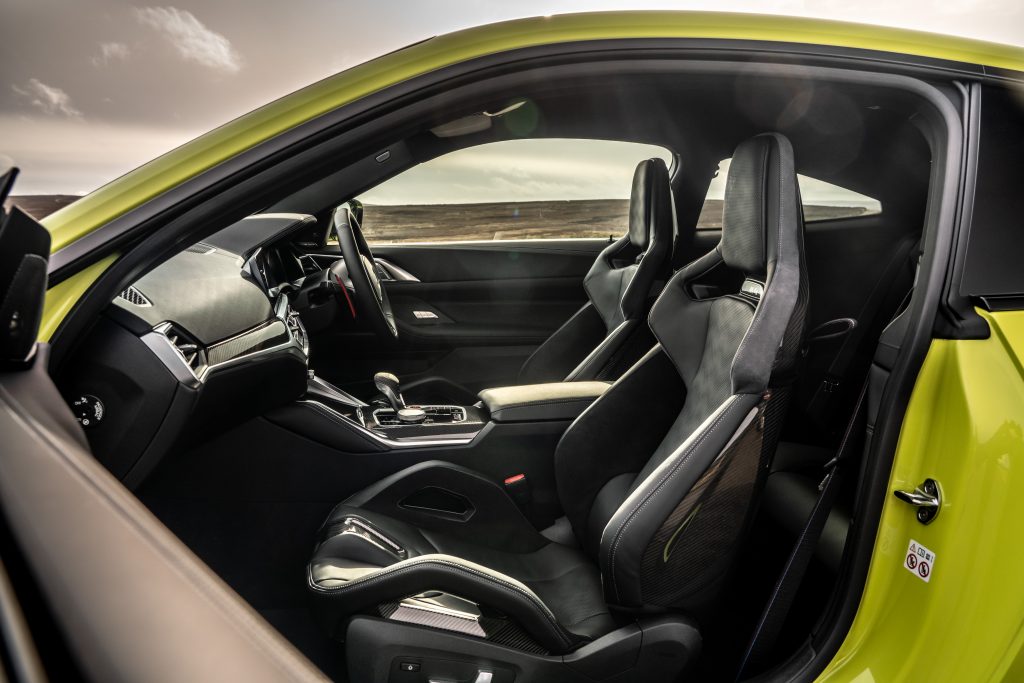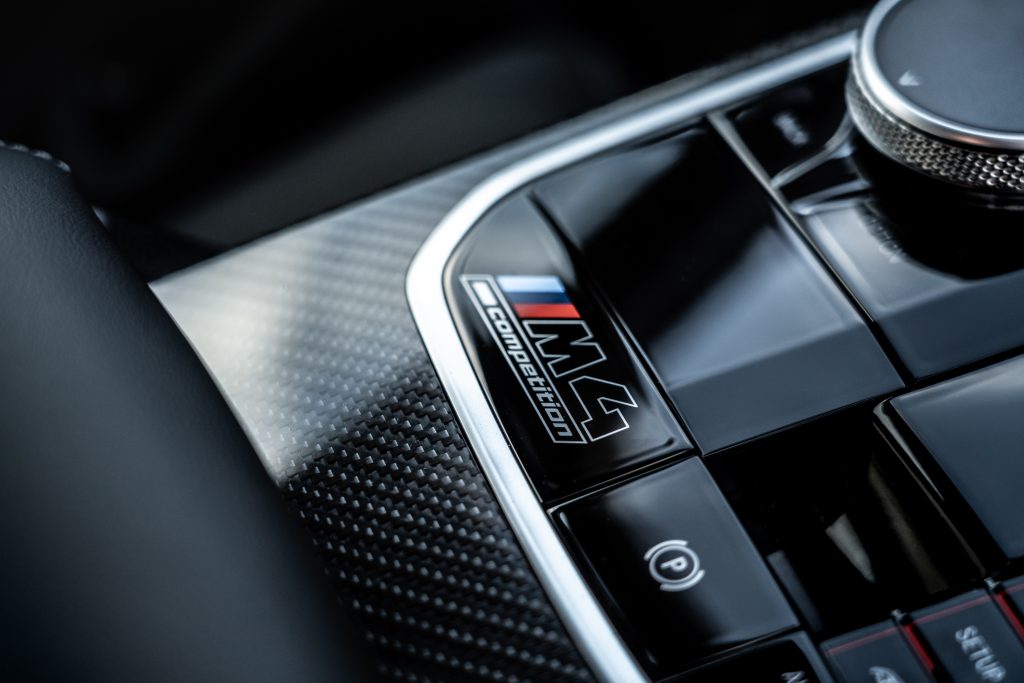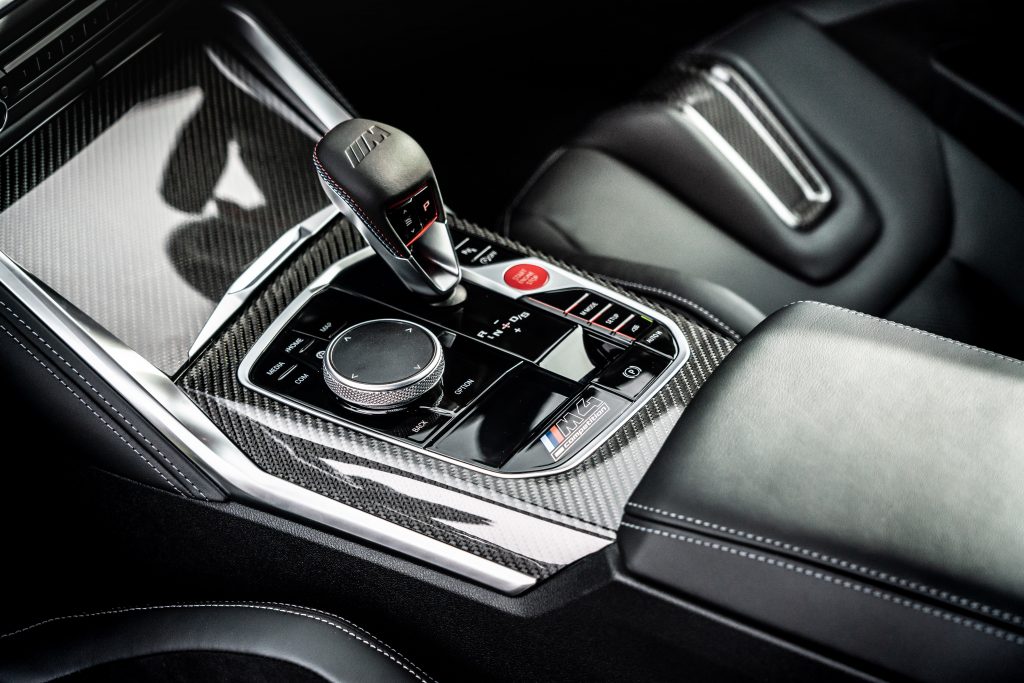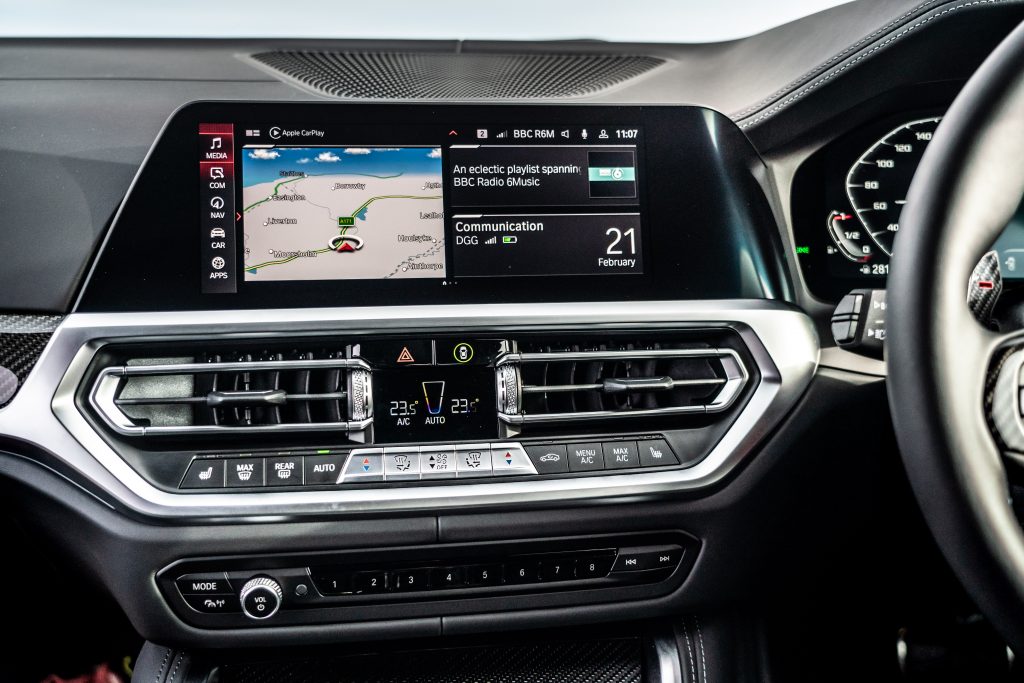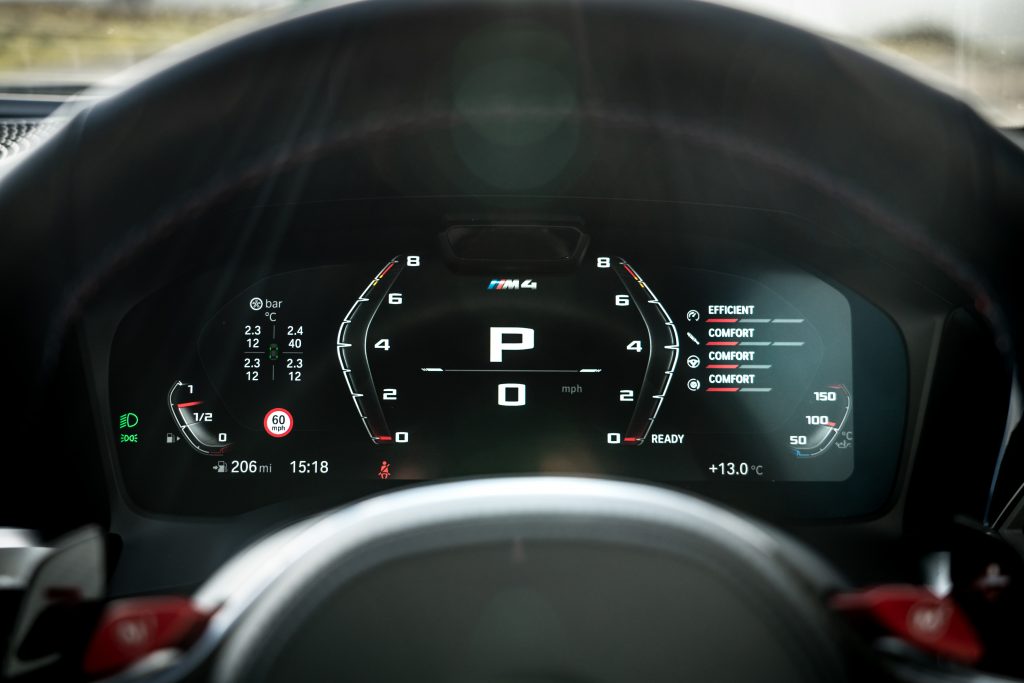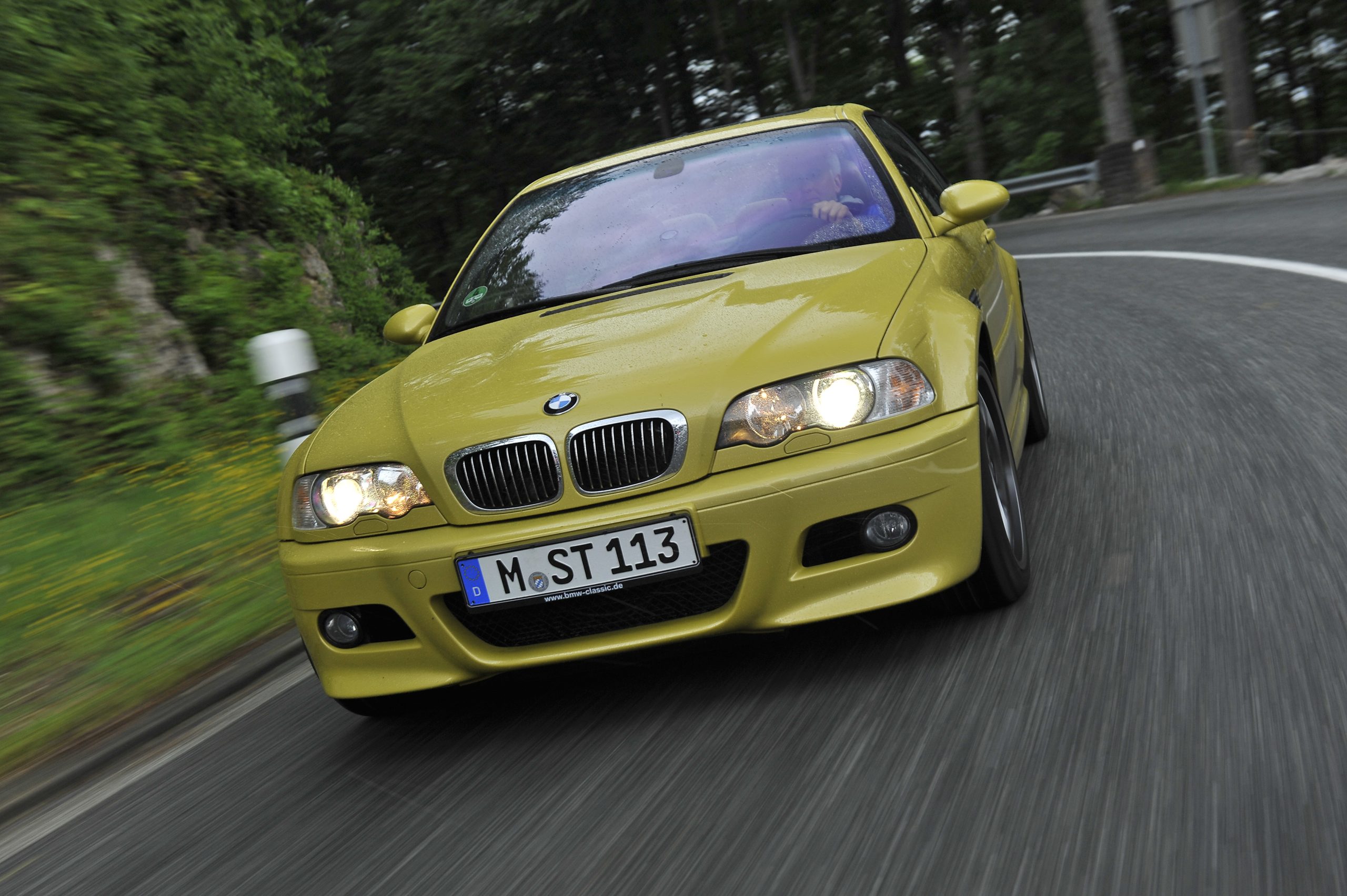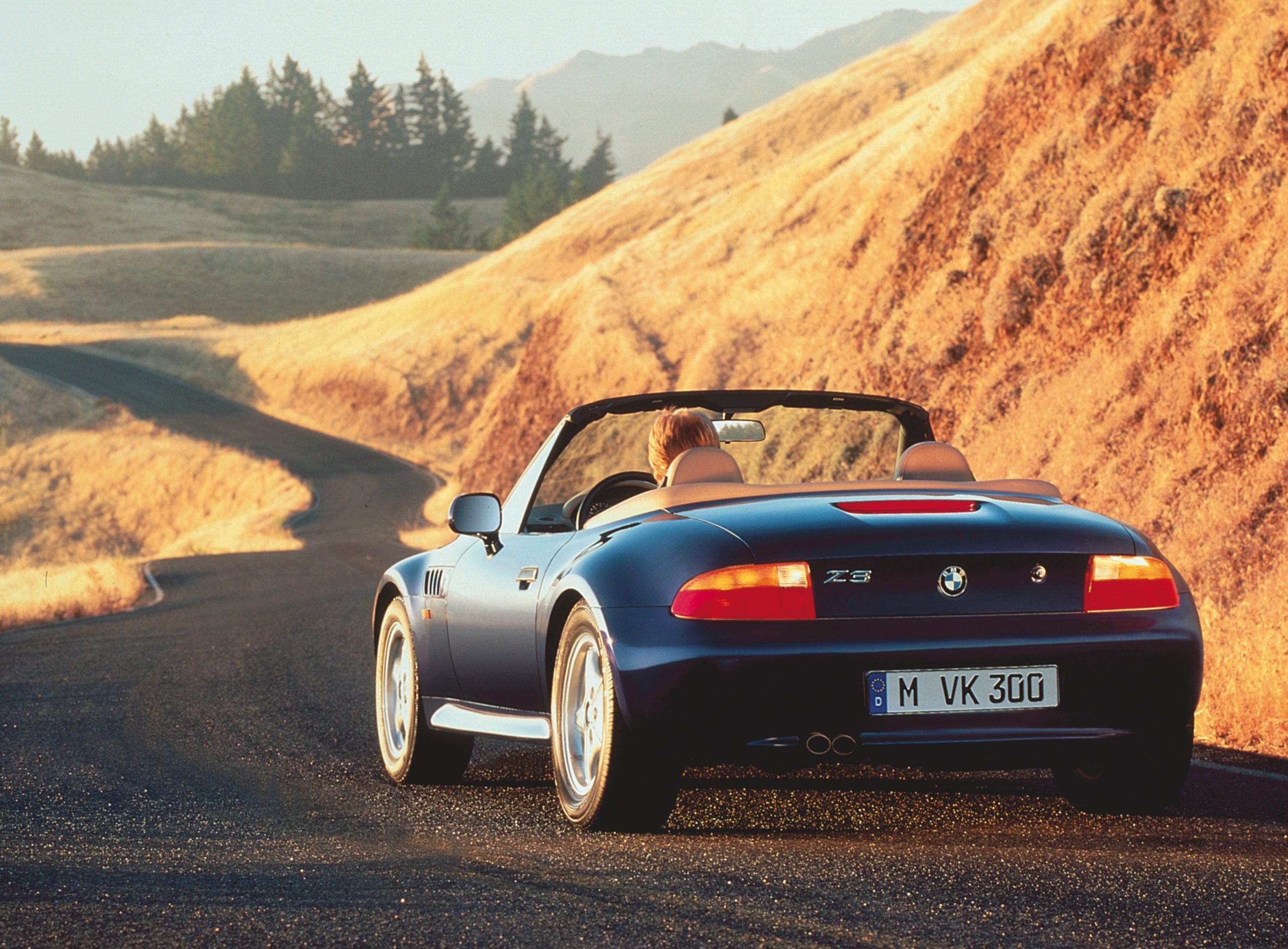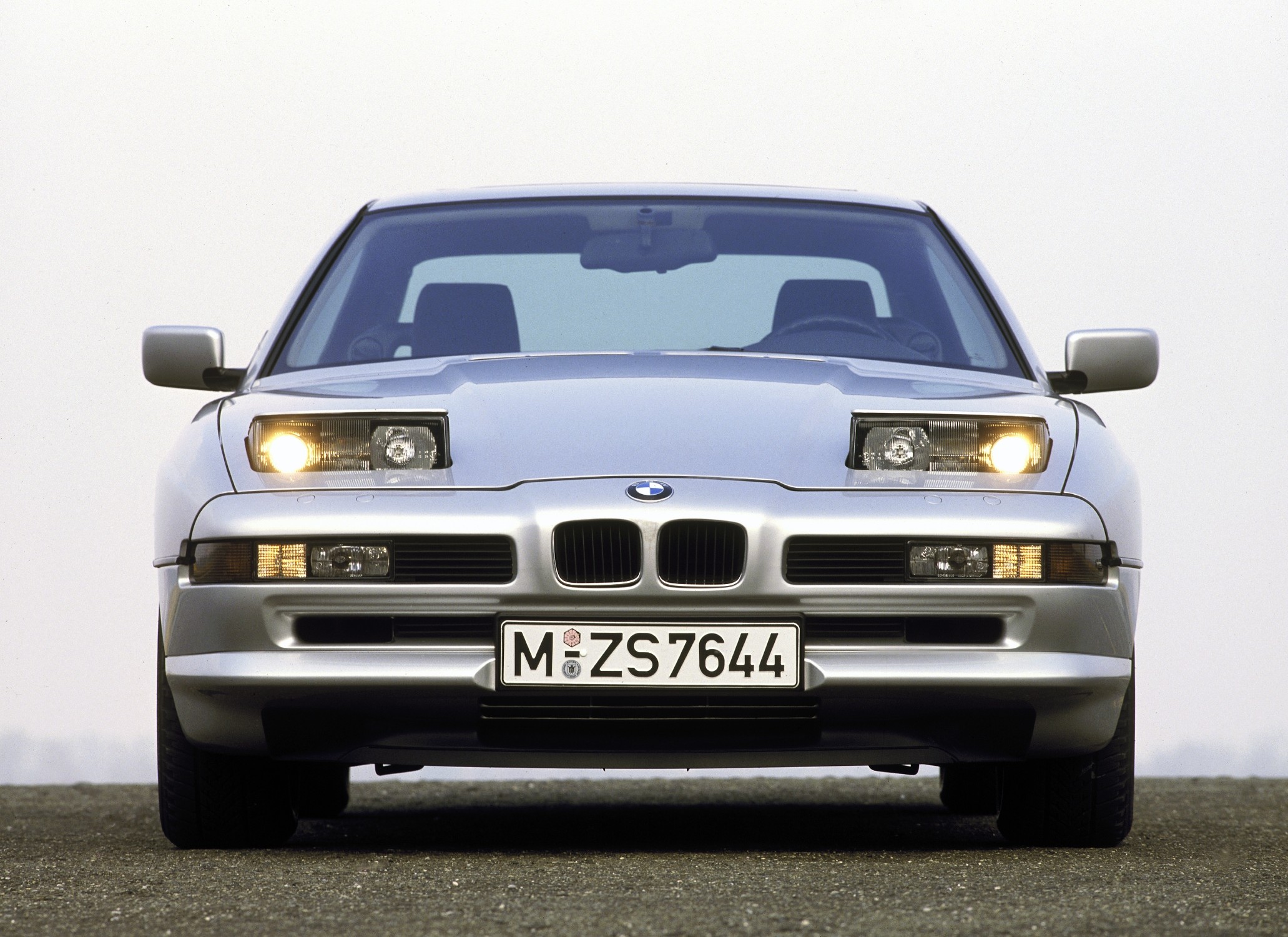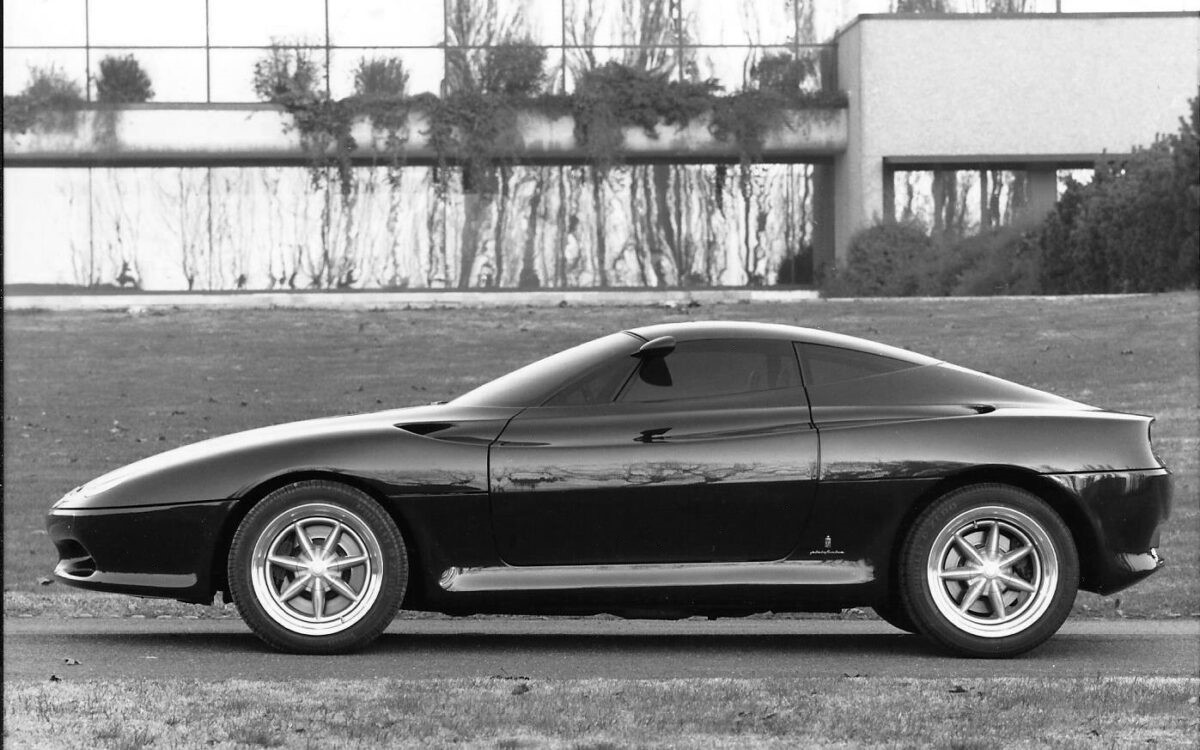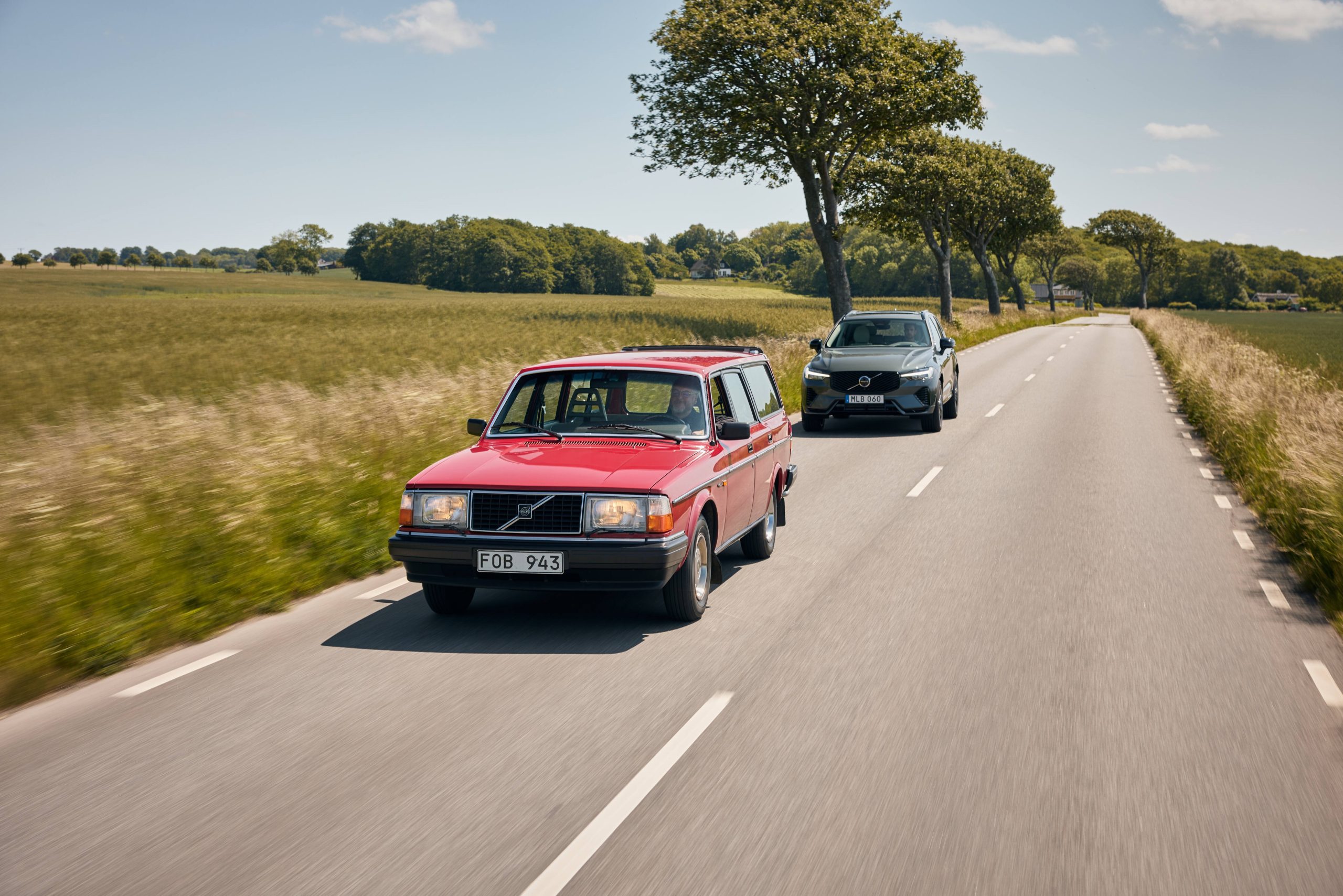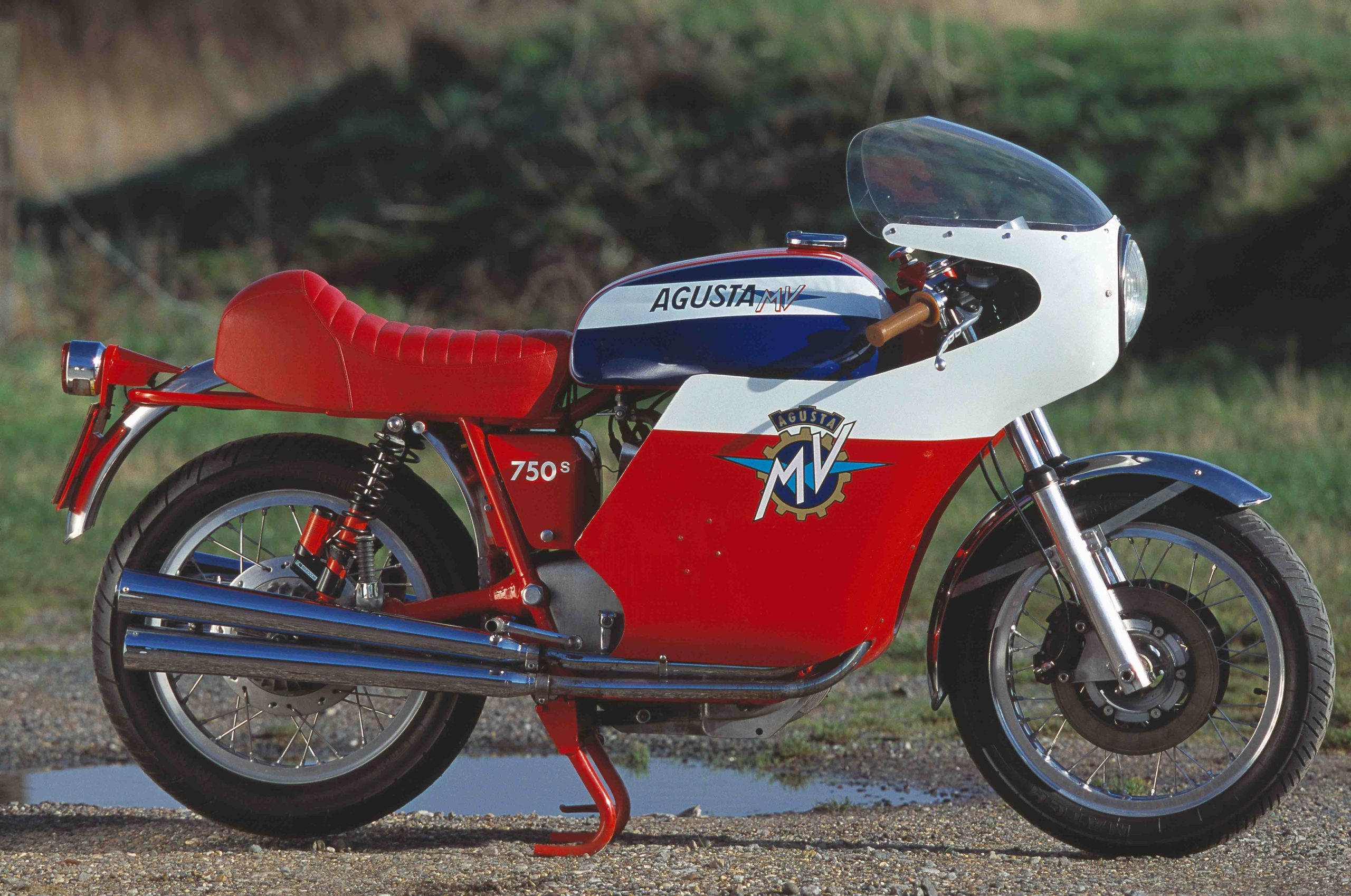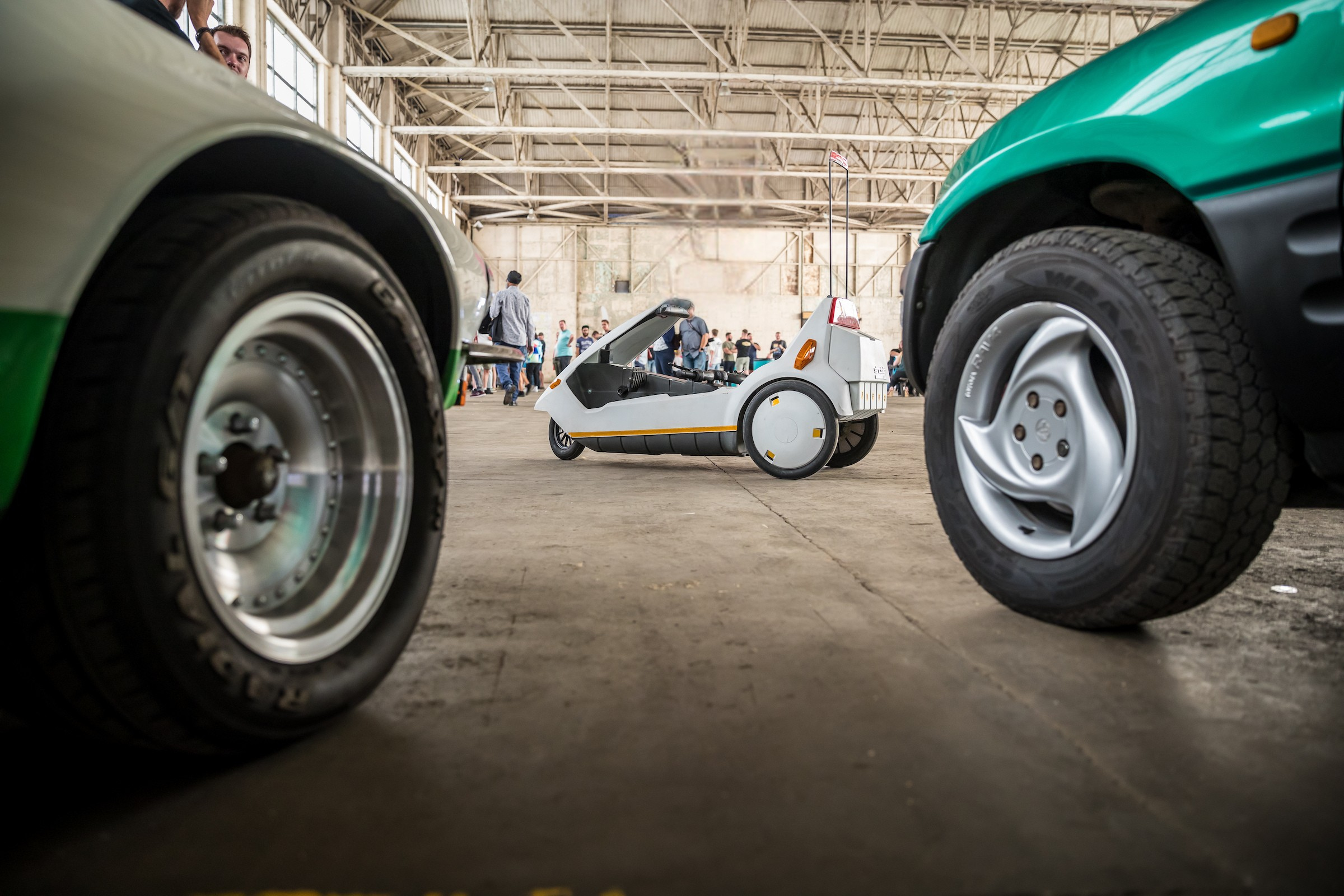Into the wet roundabout we go. Just enough speed to push the front wheels wide; ease off the throttle and let the weight transfer; back on the gas, summoning as many of the many torques and 500 horses as you dare; feel the tail slide around, hold the angle with a deft dab of steering lock and just the right amount of power; keep the angle until you’ve had your fill of fun. Impressed? You shouldn’t be. It was all the work of a software engineer.
Welcome to the new age of M car. One that is resolutely digital. Where software can make drivers appear as gifted as The Stig. And mean it is entirely possible for a four-seat, 500- horsepower coupé with the rear-wheels doing the driving, to behave in an entirely predictable fashion, whether ferrying the kids home from school on a wet and wild afternoon or firing the M4 from apex to rumble strip around your favourite race circuit.

The roundabout exercise put to the test one of the latest enhancements made to BMW’s M3 and M4 family – a ten-stage traction control system that is part and parcel of the M Drive Professional package that uses traction control, stability control and the electronic differential to skillfully manage the power delivery and car’s attitude every step of the way. To all but the developers it seems a form of electronic witchcraft. But when you get beyond the coding, is BMW’s best-selling performance car made of the right stuff?
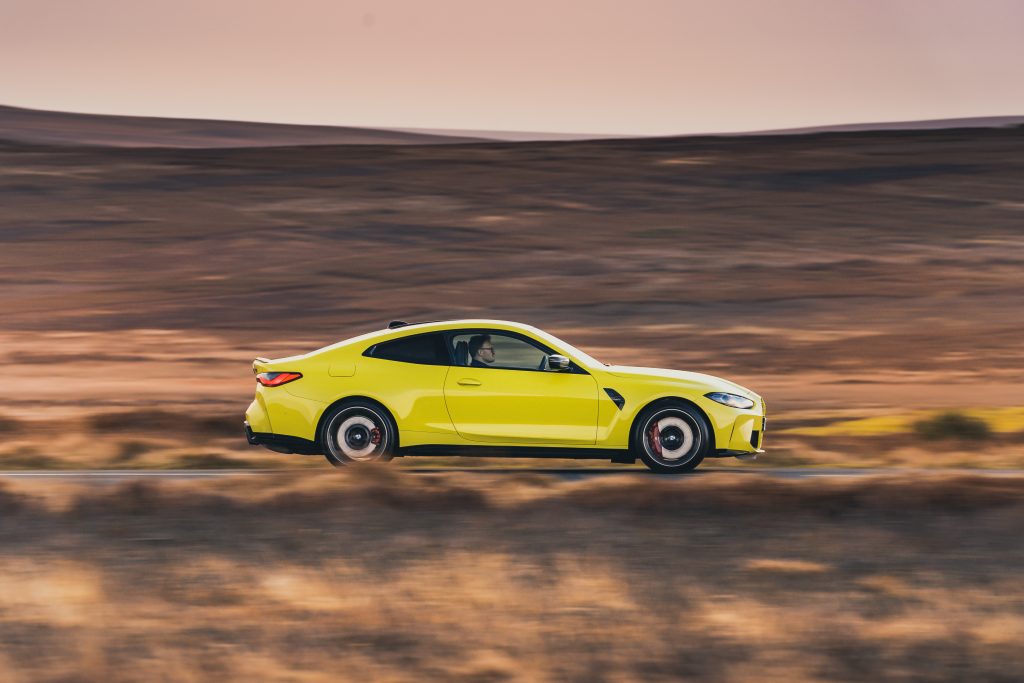
Much has changed over the last 35 years since the introduction of the M3. That car, known as the E30, was built to let BMW to flex its muscles in motorsport and compete in national and international saloon and touring car championships. Just 18,000 were built, and today the four-cylinder, box-arch homologation special is a sought-after collector’s car, with a reputation for one of the sweetest-handling chassis of its time.
Since then, it has grown, physically and in terms of its market presence. The two generations of six-cylinder cars shot up in volume, with 1992’s E36 going on to sell 71,000 M3s, in part helped by a more rounded character and the addition of a saloon. The 2000 E46 hit 86,000 units, a sensational engine and equally sensational CS and CSL special editions sprinkling magic dust over the M3’s reputation. But the big-engined, V8-powered E90 from 2007 didn’t shine in quite the same way, even as the bright orange, roll-cage equipped GTS, and sales slipped back to 66,000. With emissions legislation tightening its grip on cars like the M3, the next, F80 version adopted turbocharging technology and became the M3 and M4, and drivers seemed to like what they found, sales climbing to 110,505 units – even if the critics found the prickly driving experience as nerve-wracking as a game of murder in the dark.
The sixth generation, G80 car retains the M3 and M4 designations for the saloon and coupé and will be sold in Competition-only spec for UK drivers, with prices starting from £74,755 for the saloon and £76,055 for the coupé (which outsells the former by about three to one).
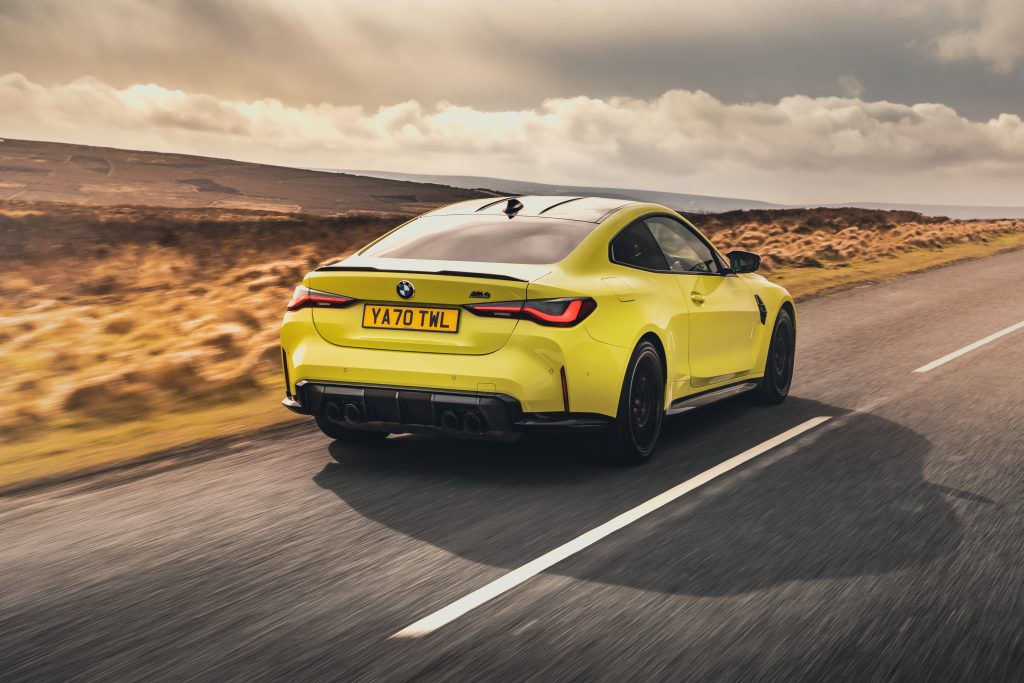
Unsurprisingly it sticks with turbocharging for its new 3-litre straight-six motor. It’s big enough (2080mm wide) to challenge Britain’s quaintly narrow roads, while the kerbweight (1725kg) suggests during its gestation someone left the car with the keys to the donut shop. It’s 170kg heavier than the car it replaces, and – cough – 565kg more – cough – than the original M3. Over 35 years the M3/M4 has piled on the equivalent of a Caterham Seven.
We all get the reasons behind this. It isn’t a homologation special. There is enough legislation surrounding vehicle certification to fill the British Library. And, let’s be honest, these cars aren’t aimed at petrolheads. They’re aimed at successful individuals who wish to express themselves as they drive to their reserved parking spot in the company car park.
At least, that’s what BMW says as it attempts to rationalise the way the G80 looks. The styling is, shall we say, busy. A Chris Bangle-era BMW seems soothing on the eye by comparison. Draw your own conclusions.
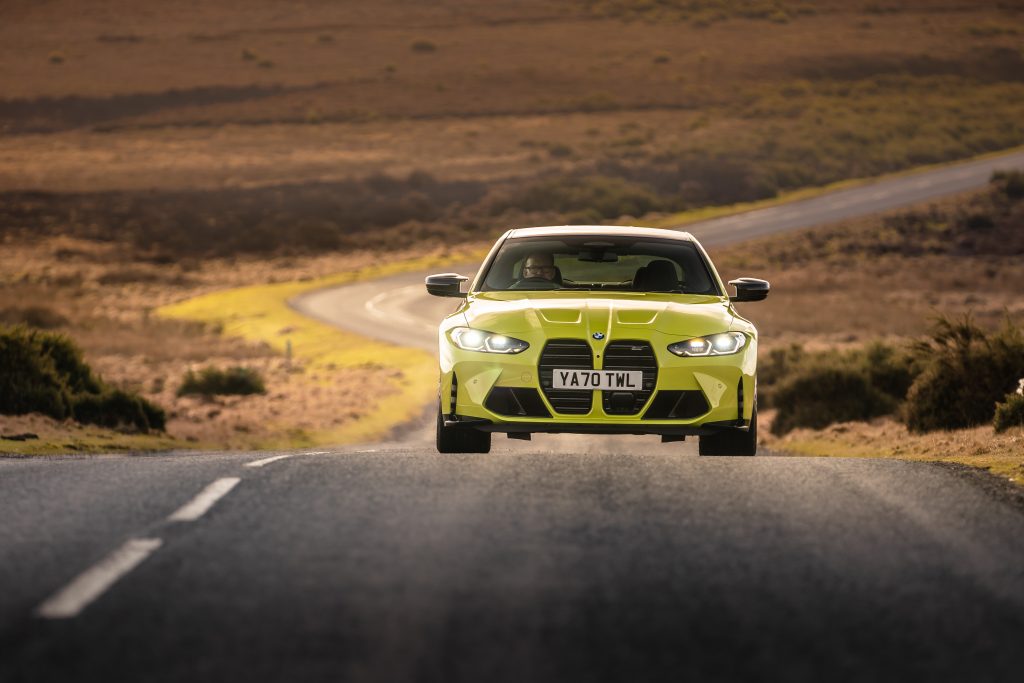
There are 16 standard colours for the range, but those wishing to express themselves further still can splash out on BMW’s Individual colours, with more than 90 to mull over. The M4 pictured here is the standard, non-metallic Sao Paulo Yellow – a highlighter-bright hue that is a nod to a tradition started with the E36’s Dakar Yellow and the E46’s Phoenix Yellow. It can be complemented by a choice of 19- or 20-inch forged alloy wheels providing a total of four different finishes, while the brake calipers can be had in blue, black, red or gold.
If you think Sao Paulo Yellow requires sunglasses, wait until you open the door. The interior colour scheme of the M4 Competition we drove was like something from a FILA shell suit catalogue circa 1980. It’s a, er, strong look, with lilac and yellow leather contrasting with carbonfibre and piano-black inlays.
Inevitably, there’s no shortage of options packs. You could spend more than £13,000 on the Ultimate Pack, which combines five bundles into one for the same price as a tatty BMW M3 E46. For almost £8000 BMW will fit carbon-ceramic brakes and raise the car’s limited top speed to 180mph. And if you have a thing for carbonfibre, try the near-£7000 styling kit and carbon bucket seats, which mimic racing seats. As fantastically supportive as they are, the carbon seats look like you’ve left a cricket box guard between your legs.
There’s a lot to take in. And that’s before you’ve started the engine and dived into the various driving modes, adjusted using the intuitive iDrive rotary controller or central touchscreen. The engine offers Efficient, Sport and Sport Plus. The chassis gets Comfort, Sport and Sport Plus. The steering and brake pedal offer Comfort or Sport. Find your preferred settings for everyday commuting and let’s-get-a-move-on motoring and, in time-honoured fashion, you can save them to the M1 and M2 buttons on the steering wheel. There’s also three-stage adjustment for the automatic gearbox – Surprise! Yes, really, it now uses a slush ‘box – and a sports setting for the exhaust, plus the various settings for the traction and stability control. (Note to BMW peeps: sort out the quality of the button action around the base of the gearlever; they feel like a Korean car from more than a decade ago.) In short, you could fiddle for half an hour before actually going anywhere.
So let’s go. The steering is very light, significantly lighter than the Ford Fiesta ST I’d arrived in, but soon shows itself to be wonderfully responsive from dead-centre. You can make it more resistant to your inputs, but the change isn’t significant.
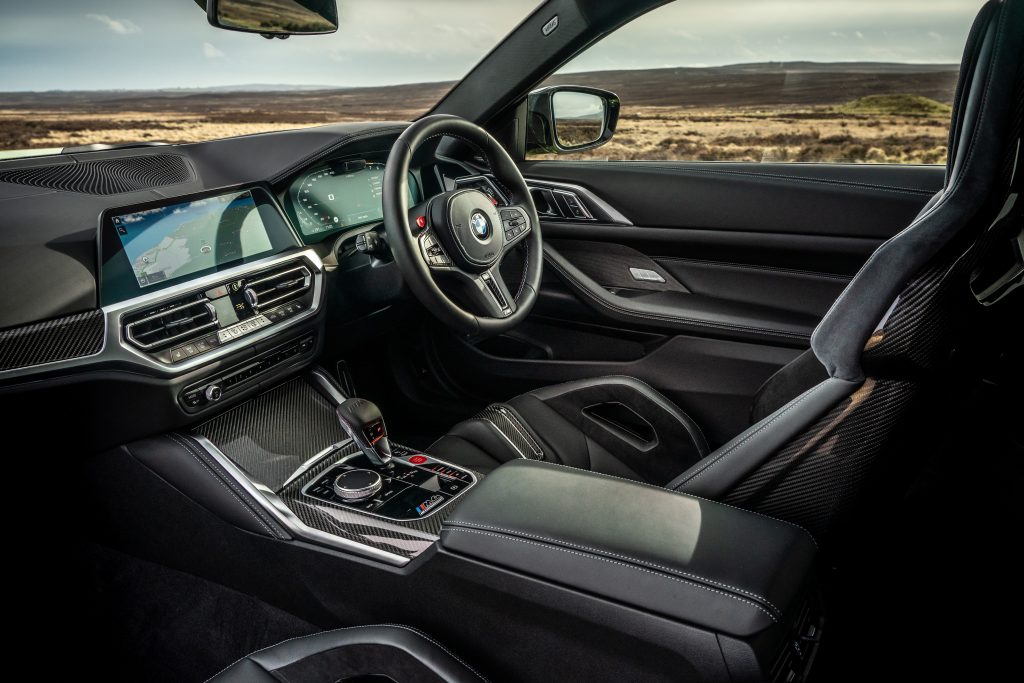
The exhaust note is borderline pathetic – whichever mode it’s running. Who gets the blame for that, the engineers or the regulators? (Sorry, silly question.) But as you’d expect from the latest generation of twin-turbo straight-six, response is impressive, oomph is never found wanting and the throttle response and absence of turbo lag is outstanding. But there’s something missing. Just pottering about, at anywhere up to half throttle, the engine is muted and far from the star of the show. Where’s the goosebumps, the magic, the fizz you should be getting from an M car?
That said, if you want to go faster, you’re probably going to need to buy a private jet. It can make your stomach giddy in second and third gears (0-62mph is done and dusted in 3.9 seconds) and higher up the rev range, past 4000rpm, the straight-six makes itself heard.
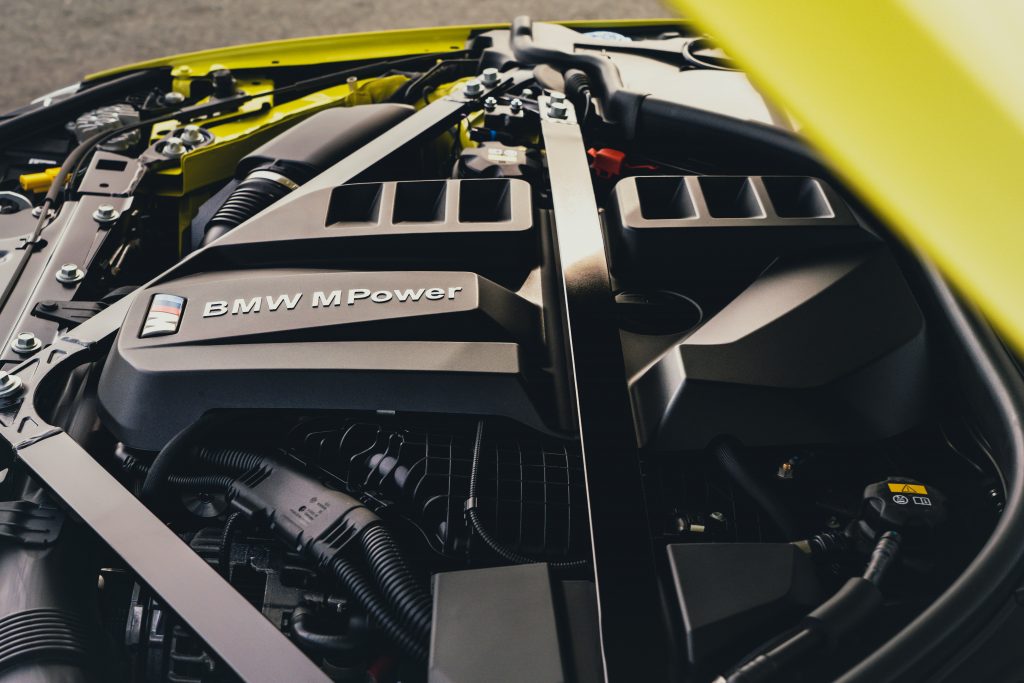
The most impressive aspect of the M4 Competition is its composure. Even on greasy roads it feels together, trustworthy and far from the intimidating thing its predecessor could be. Despite its low profile tyres the car holds its line well, absorbs bumps and it disguises its weight, with excellent body control and impressive drive out of corners. And when the electronics do need to lend a helping hand to manage the full 500 horses going to the back wheels, they do so without ham-fisted interuptions of the driving experience.
And should you choose to have a play with the 10-stage traction control and drift recording system, rest assured, you’ll be amused. Just as Ford put a smile on the face of enthusiasts with Mustang’s Line Lock feature, which allows the driver to perform childish burnouts, so BMW is letting its hair down with this.
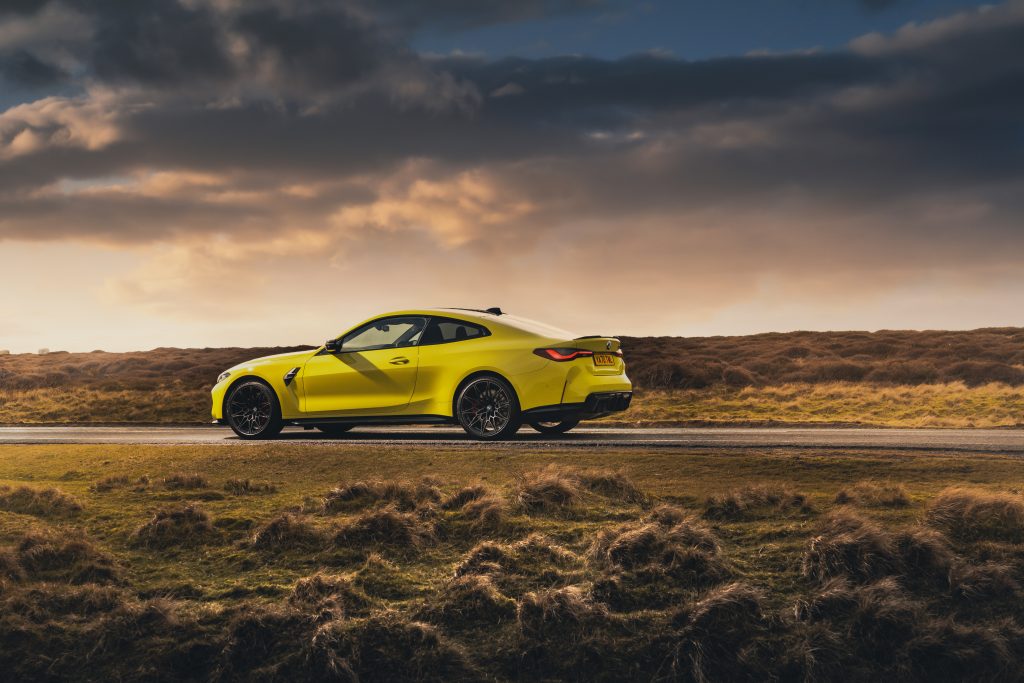
But what of the M Steptronic gearbox? It sounds like a dance act; does it put its best foot forward? I think it dilutes the driving experience. The snappy response of a good dual clutch transmission is missing, the fuel economy averaged out at 17mpg, and it’s galling to think that the standard, non-Competition spec M3 and M4 sold in other markets can be had with a six-speed manual gearbox.
Other points of note? There’s a lot of tyre noise but the ride comfort is yielding enough to make this car comfortable over a three-hour drive. There’s enough space in the back seats to make it a genuinely versatile coupé. The boot is generously sized and has a ski hatch. And if you want more space still an M3 Touring is coming to showrooms at the end of next year. Also on its way (production begins this July) is a four-wheel drive xDrive version in all bodystyles, which is likely to prove popular.
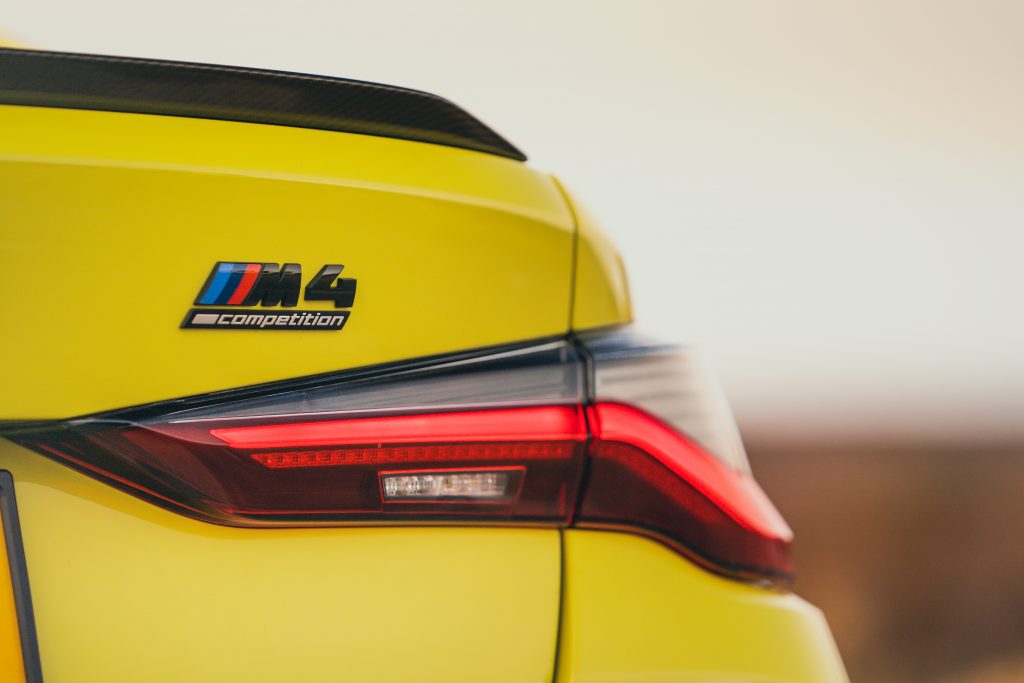
By now you’ve probably twigged that the M4 Competition is a fantastically accomplished car. Thanks to a Matrix-like level of digital technology, it has speed to spare, is rarely flustered across country and on longer drives it happily plays the part of a grand tourer. It’s exactly what BMW set out to create – a performance car for everyday use, one that bears comparison with a Porsche 911.
Peel away that layer of digital assistance and beneath lies an accomplished car. But if you were coming to it in the expectation you’d get a machine that would make the hairs on the back of your neck stand on end, one that demands interaction from its driver, you’d be disappointed. For the purist, then, or indeed those with an eye on setting aside a modern-era M car for the future, the M car with the fizz factor remains the M2 Competition. At least, until an M4 GTS comes along…
2021 BMW M4 Competition specifications
Price: £76,055
Engine: Straight-six cylinder, 2996cc, twin-turbo, petrol
Power: 503bhp @ 5600 – 7200rpm
Torque: 479 Ibft @ 2750 – 5500rpm
Gearbox: 8-speed automatic, rear-wheel drive
Kerbweight: 1725kg
0-62mph: 3.9 seconds
Top speed: 155mph (180mph with M Pro Package)
Fuel consumption: 27.7mpg
CO2 emissions: 234g/km

